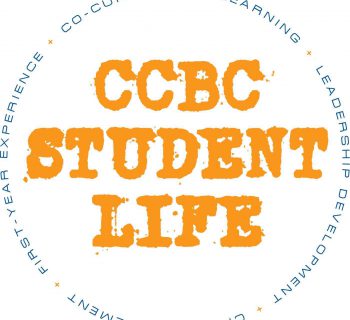The writer of this article was part of a summer honors experience: Voices From Our Backyard: Local News Narratives during which students created and wrote stories to be published in community news outlets.
Dara Butler and Ali Obaid
College students frequently face plenty of struggles when trying to maintain a stable life. From maintaining a perfect GPA, to figuring out what to eat before the next class, they must deal with everyday stressors as they work to navigate through life. A recent informal, nonscientific Google poll of 20 college students in the Baltimore area conducted by The Connection staff indicated that 45 percent of college students say that their biggest stressor is financial resource deficiency, 70 percent stress over their course load, and 40 percent are impacted by mental health issues.
CCBC English Professor and Writing Coach Mary Jo Richards, who was also a college student herself while working fulltime as a professor acknowledged that the stress of college can be overwhelming even when you know what to expect; furthermore she explained that, "As a student, there is not much you can do about the amount of work you are being required to do, but what you can do is become a good manager of that workload.”
One step she takes to make sure her students do not feel overwhelmed is to have a flexible late work policy.
“That said I do try to remind students that it is important to their success to attend class regularly, be on time, and try to keep up with the calendar of assignments that are due,” she said.
Kayla Davies, another staff member at CCBC, who works in Continuing Education as one of the "Learn. Earn. Achieve. Progress." (LEAP) Coordinators, spoke on the importance of students acknowledging the financial grants and scholarships that they are eligible for as well as additional educational resources that could help students with their mental health and course load reduction.
“One of the main roles of what you do as a staff or faculty member is to educate the student,” Davies said.
Davies, who recently earned a doctorate at Liberty University, believes time management and taking care of other responsibilities inside and outside of school are one of the biggest challenges when it comes to dealing with stress.
“It is hard being a student whether you are full or part-time as well as being whatever it is in your outside life. Many people have employment and jobs that they have to think about. They have life at home that they have to take care of,” she said.
As a director of college and community outreach services and a Student Success Navigator at CCBC, Dr. Heather Griner helps many with handling stress by using her expertise as a counselor, academic advisor, and disability support provider.
“Students come to us, and we help solve problems, but we also want students to become their own advocates and empower students to find those resources rather than being that sole resource for them,” she said.
Griner stated that in 2020, she helped more than 200 students. This was double the amount she helped in the previous year.
When asked about the biggest stressors students come to her with, Griner could not pinpoint any one particular stressor. “Each student is a unique case. Everybody comes with their own baggage, right? So, everybody comes with their own story.”
Jeremy Caplan is a Communications Professor and Part-Time Advisor at The Community College of Baltimore County. As an advisor, he comes in contact with more students who do need help navigating the challenges of college. "Being an advisor is different from working as a teacher. As an advisor, you are working one-on-one with the students interpersonally, rather than in a presentational setting. I do like working in advising, and helping the students because in that office you are helping them navigate their day- to-day lives as well as academics.”
With help from college support teams like advising and success navigators, students can find ways to cope with stressful moments when dealing with life both inside and outside of college and have less time to face hardships alone. “We focus directly on our students first," said Davies.
Along with the challenges and circumstances, there are personal and introspective issues for college students that many find challenging to deal with while they are trying to be successful in school.
"I guess you could say at one point I was feeling homesick, but I never really realized it," Morgan State student LaRai Brown said. "I didn't really want to go out with friends. I just wanted to be in my dorm, but I never really realized like ohh I was, you know, going through a mental change and it was tolling on me a little bit."
Moving to live on campus is a major stressor for students that can cause them to be anxious and feel lost.
“My family had to actually come up to the school to come get me because I think I had, like, an anxiety attack or like a panic attack or something," she said. “I just stayed off campus for like, two weeks, and then I got myself together."
Brown said that the support of her family was extremely helpful. “I surrounded myself with people that love me and people that I love. Then I went back."
Another student who struggled with the stress of being on campus was Justin Copeland, a University of Maryland Easter Shore student. Copeland came from Towson University after his third year there. Even though Copeland is ok with socialization, he still found other difficulties of living in dorms. "All that stuff is an adjustment for somebody, an only child, and basically having a bunch of siblings all of a sudden," Copeland said. “You [are] just being adopted into a family, you got to work with it."
Most students believe moving on campus is like moving into a new home, except it's 10x bigger. It’s also like being added to a new family with a bunch of new siblings that you might or might not have a good relationship with. The transition can be a tough pill to swallow for many students.
For some people making friends is an issue, but for community college students, keeping friends is an issue.
Kyla Ray is a CCBC student who has been at the college since 2018 and has gone through many majors. Because many community college students work, live off campus, and have other responsibilities, it may take them longer to graduate, or they may not be able to take as many courses as their classmates. This means that some students might move on more quickly than others.
"I think that's probably one of the challenges is just keeping a consistent friend group where you could depend on," Ray said. "So, it would just be losing motivation."
Ray, like many students, had to make a new friend group and another and another. It caused her to lose motivation and work extra hard to make another friend group. Community college students are the ones who struggle with this issue the most. People transfer, drop out, or decide to do something else in a community college.
Talking to someone is a wonderful way to overcome those obstacles and alleviate those stressors.
“The main thing that helped me out was communicating that to other people and talking to a counseling center,” Copeland said, "Sometimes it's just as simple as talking to somebody."














